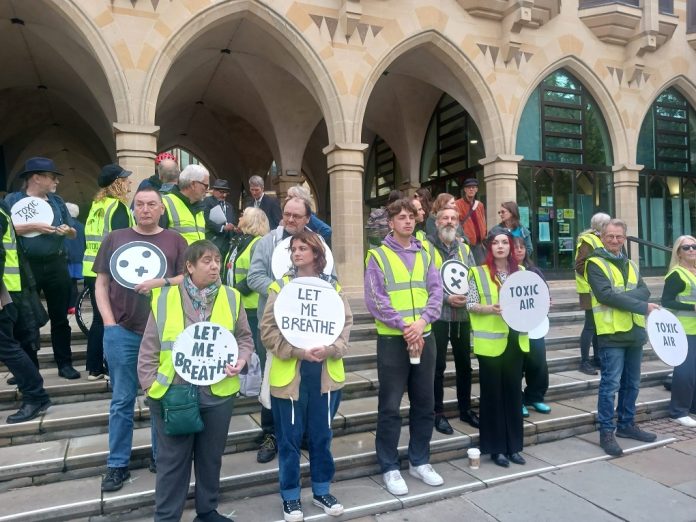Charley Lincoln, Northampton Socialist Party
People protested outside a full meeting of Northampton council on 28 September. Northampton is the worst for air pollution in the UK, according to the website House Fresh.
The council was first informed in 2006, and legally committed to come up with a ‘comprehensive plan’ within 18 months. 17 years later, and the council’s harmful negligence and inaction means we now have the top spot.
Everyone is impacted
Everyone in Northampton is being impacted by toxic levels of air pollution, according to the World Health Organisation. Umbrella Fair says, on average, there are 102 Northampton deaths a year – two a week – related to our toxic air.
Marly Lyman, one of the organisers of the event, spoke to the Socialist Party: “Our media, government and corporations want to keep us from mobilising, from making change, and instead want us to keep being distracted with the day to day. The sooner we look at the issue, the sooner we can collectively organise and make the change. They don’t want us doing that, because it’s not profitable for them and their cronies.”
Ella Adoo-Kisswi-Debrah died in London, at nine years old, from a fatal asthma attack triggered by illegal levels of toxins caused by road traffic. The first person in the UK to have air pollution as her cause of death in the official report.
Developing asthma in childhood has sadly become a common complaint. The UK has 5.4 million asthmatic people, 1.1 million children.
Failure to reduce air pollution is resulting in lost lives. The British Heart Foundation has stated that in the next decade there could be 1,700 deaths down to air pollution just in Northamptonshire alone. National and local governments should stop promoting private companies’ interests above the health and safety of people. We can’t wait any longer. We need huge investment in environmentally friendly policies, funded by the wealth hoarded by the super-rich – such as renewable energy production and extended free public transport.







